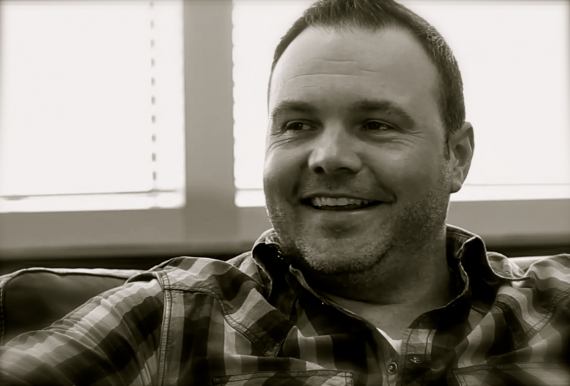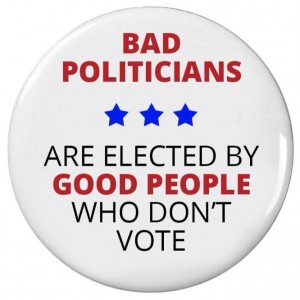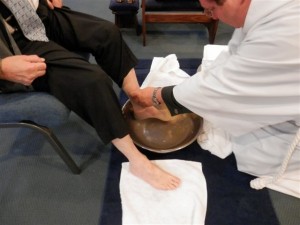I am sure you have heard about Mark Driscoll and his recent resignation from Mars Hill in Seattle.
This post is not really about Mark Driscoll, but about how his resignation is a symptom of a wider problem in Western Christianity.
As much as I never really cared for Mark’s preaching, approach to ministry, or theology, I always felt a bit sorry for him. He was another victim of the corporate, celebrity-style Christendom that operates under the word “church” in most of the western world.

About ten years ago I listened to a sermon by Mark Driscoll in which he publicly stated his desire for Mars Hill to become the largest church in the United States. It had already been recognized at that time as the fastest growing church, and he wanted to leverage that growth into the largest congregation. Yet according to recent news releases, by January 1, 2015, Mars Hill will be no more.
I think people around the world are finally starting to wake up to the fact that when it comes to church, bigger is not always better. Of course, this doesn’t mean that smaller is better either.
Church is not about “how many” at all. It is not even about “how.”
In a culture which says “It’s all about you,” we need to reawaken to the fact that Church is all about “who.”
Who is the church about?
Jesus! He is the sole head.
Who is the church about?
People meeting together for friendship and fellowship.
Lots of people point to the description of “two or three” in Matthew 18 as the minimum requirement for church. I personally don’t think this text has anything to do with how many people are needed to “do” church, for church is not actually something we do, but is something we are.
But even if we say that church exists where there are two or three, nothing is said in Matthew 18:20 that when these two or three gather, one of them needs to stand up and give a sermon. Nothing is said that when these two or three gather, they need to sit in a circle with their bibles open on their laps, discussing a particular text or point of theology. Nothing is said about prayer or music or food.
It is best to think of church as you think of family.
Do you ever talk about going to “family”? Of course not. You are a family.
Do you ever plan regular family events? Well, sometimes. But these are rarely set in stone for all time, and you never assume that what you do in your family is what all families everywhere should be doing as well.
But even when family events are planned, true “family” most often occurs outside and away from these family events. True “family” happens as life happens. True family occurs at 4:00 in the morning when someone has a bad dream or wakes up with a stomach ache. True family occurs when memories are formed while buying celery at the supermarket. True family occurs when everybody laughs at a joke about peas on the curtains. If you tried to package and export these family events to all other families, it wouldn’t work.
How did I get onto this topic after beginning with a discussion about reconciliation and redemption of abusive leaders?
For Mark Driscoll, I hope that he does not enter into another form of Christian leadership any time soon. It’s not because he is disqualified. Far from it! He might be more qualified now then ever before. It is just that modern Christian forms of “leadership” look nothing like the leadership modeled by Jesus.
For all the fans of Mark Driscoll, I hope that rather than simply turn to another celebrity pastor or mega-gathering for their weekly fix of preaching, they see that Jesus Himself wants to lead them into the biggest adventure of a lifetime.
And as for all the critics of Mark Driscoll, I hope there is absolutely no gloating whatsoever. What happened to Mark Driscoll and Mars Hill is extremely sad, and anyone who gloats is in danger of the exact same problem.
Ultimately, I hope that western Christianity in general learns from what happened to Mark Driscoll and Mars Hill.
I hope we learn that reconciling and redeeming abusive church leaders begins with reconciling and redeeming the church itself.
The problem is not the church leaders. Church leaders are some of the victims of a church structure that functions as God never intended.
So let’s abandon our power structures, our titles, our positions, our platforms, our offering plates, and even our buildings and campuses.
Instead, let us turn to love. Love for our neighbors. Love for our enemies. Love for our family.
Let us not rush to get fallen leaders back into positions of authority. Let us not rush to get anyone into any position of authority in the “church,” for there is no authority other than Jesus Christ, and there is no church other than the family of God.
This post was part of the November 2014 Synchroblog. Here are the other contributors:
- Justin Steckbauer – The Servant Leader: A Radical Concept
- Mary – Can I Get A Doctor?
- Glenn Hager – The Man Of God Myth
- Lisa – Forgive
- Peggy Brown – Abi and November’s Synchroblog: Spiritual Abuse and Redemption
- Edwin Pastor FedEx Aldrich – Shooting Stars: Of Scandal, Abuse, Restoration, and Systematic Failures
- Tara – Forgive Us Our Sins As We Forgive Those…
- Liz Dyer – Sorry






 Your vote probably will not matter very much. The people you vote for probably won’t win. In fact, if the people you vote for do win, they will probably turn out to be just as corrupt as the people you voted out. And don’t think for a second that you are going to effect change in your city, county, state, or country by casting a vote on election day. Change doesn’t happen that way. True and lasting changes happens only through lives submitted to Jesus Christ, which is true of very few elected officials, and even if we did elect Christian politicians, it would not be right for them to impose Christian morality on the rest of society like some sort of Christianized Sharia Law.
Your vote probably will not matter very much. The people you vote for probably won’t win. In fact, if the people you vote for do win, they will probably turn out to be just as corrupt as the people you voted out. And don’t think for a second that you are going to effect change in your city, county, state, or country by casting a vote on election day. Change doesn’t happen that way. True and lasting changes happens only through lives submitted to Jesus Christ, which is true of very few elected officials, and even if we did elect Christian politicians, it would not be right for them to impose Christian morality on the rest of society like some sort of Christianized Sharia Law.
 All I am saying is that if you did raise your voice by voting, you have no basis on which to raise your voice and criticize the government for the decisions it makes and directions it goes. Voting is not a replacement for being the cultural conscience, but it is the first step in doing so. If you want to call our leaders to account for their actions and decisions, then the first step in having the right to do so is to get out and vote.
All I am saying is that if you did raise your voice by voting, you have no basis on which to raise your voice and criticize the government for the decisions it makes and directions it goes. Voting is not a replacement for being the cultural conscience, but it is the first step in doing so. If you want to call our leaders to account for their actions and decisions, then the first step in having the right to do so is to get out and vote.

 This is important because of the third principle of non-violent resistance, which is that we are not seeking to defeat people but to defeat injustice. Non-violence recognizes that those who perpetrate violence are victims of violence as well.
This is important because of the third principle of non-violent resistance, which is that we are not seeking to defeat people but to defeat injustice. Non-violence recognizes that those who perpetrate violence are victims of violence as well.
 I deal with men who are mentally ill on a weekly basis at my job. Recently, a young man named Daniel came into my office and said he had a message for me from God. He handed me a note, which said this:
I deal with men who are mentally ill on a weekly basis at my job. Recently, a young man named Daniel came into my office and said he had a message for me from God. He handed me a note, which said this: Does a modern foot washing ceremony do this? Hardly. More often than not, people who attend these foot washing ceremonies make sure that they washed their feet in advance and scraped all the gunk out of their toenails. Then they wear a clean pair of socks and shoes.
Does a modern foot washing ceremony do this? Hardly. More often than not, people who attend these foot washing ceremonies make sure that they washed their feet in advance and scraped all the gunk out of their toenails. Then they wear a clean pair of socks and shoes.